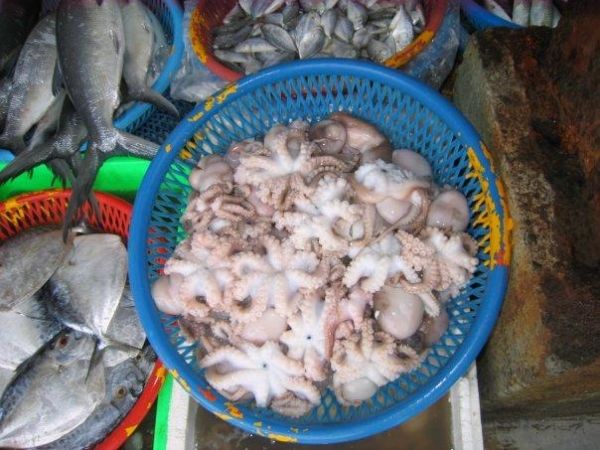Fish market favourites such as orange roughy, common octopus and pink conch are among the species of fish and invertebrates in rapid decline around the world, according to new research.
In the first study of its kind, researchers from the Sea Around Us initiative at UBC, the GEOMAR Helmholtz Centre for Ocean Research Kiel and the University of Western Australia assessed the biomass —the weight of a given population in the water— of more than 1,300 fish and invertebrate populations. They discovered global declines, some severe, of many popularly consumed species.
“This is the first-ever global study of long-term trends in the population biomass of exploited marine fish and invertebrates for all coastal areas on the planet,” said Maria ‘Deng’ Palomares, lead author of the study and manager of the Sea Around Us initiative at the University of British Columbia’s Institute for the Oceans and Fisheries. “When we looked at how the populations of major species have been doing in the past 60 years, we discovered that, at present, most of their biomasses are well below the level that can produce optimal catches.”
Of the populations analyzed in this study, 82 per cent are below the level that can produce maximum sustainable yields because they are being or have been caught at a rate that takes out more than is regrown. This also means that fishers are catching less and less fish and invertebrates over time, even if they fish longer and harder.
Read more at University of British Columbia
Image: Octopus at a fish market in Indonesia. (Credit: Photo by Deng Palomares, Sea Around Us)


